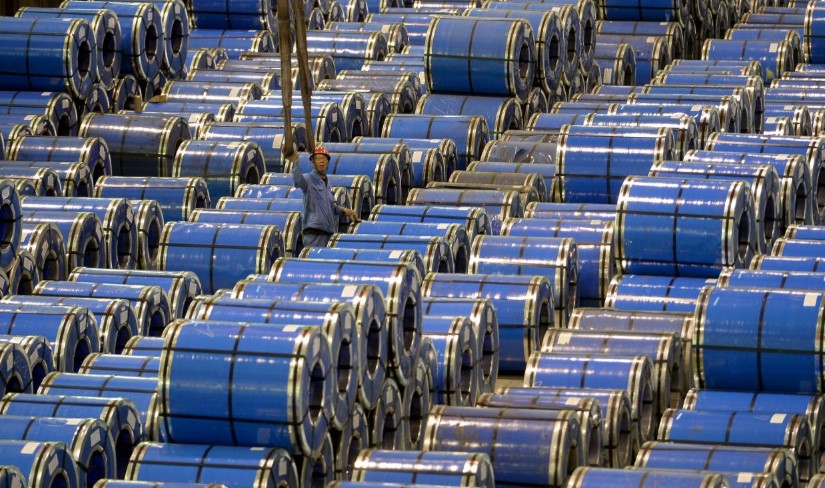
China on Monday launched an anti-dumping probe into stainless steel imports worth $1.3 billion, including from a privately owned Chinese mill with operations offshore, after complaints that a flood of product has damaged the local industry.
The Commerce Ministry said on Monday the investigation will target imports of stainless steel billet and hot-rolled stainless steel sheet and plate from the European Union, Japan, South Korea and Indonesia, which nearly tripled last year.
The move follows a complaint by Shanxi Taigang Stainless Steel (000825.SZ), with backing from four other state-owned mills including Baosteel’s stainless steel division, which blamed cheap imports on falling prices, it said.
China makes and consumes around half of the world’s stainless steel, which is used to protect against corrosion in buildings, transportation and packaging.
While the complaint targets eight foreign producers, it also lists a number Chinese companies, including the Indonesian unit of one of the world’s top producers, Tsingshan Stainless Steel, and 19 traders who import product.
Some private Chinese companies have opened or started building plants in Indonesia in recent years, drawing on its plentiful nickel resources and lower-cost of production.
A significant portion of the new production has been sold in China, analysts say.
The rapid increase in imports damaged the Chinese market, according to the complaint filed by Shanxi Taigang and released with the commerce ministry document.
Almost two-thirds of China’s stainless imports came from Indonesia last year, up from 5 percent in 2016 and zero in 2015, the complaint said. That rose to as high as 86 percent in the first quarter, it said.
Imported prices of the stainless steel products fell 23 percent to $1,867 a ton in 2017 from $2,436 a year earlier.
“If we allow these products to continue to enter the Chinese market with low prices and take more market share, sales of China’s domestic products will continue to decrease,” the complaint said.
Peter Peng, senior consultant at CRU in Beijing, said the investigation was “totally driven by an industrial dispute between SOEs (state-owned enterprises) and the fast-growing private mills.”
“Due to their cheap production costs, it’s more competitive than Chinese products,” he said.
Tsingshan opened a mill there last year with annual capacity of 3 million tonnes while Delong Holdings (DELO.SI) plans to start production there next year.
Anti-dumping duties would force mills to find new markets for their product, adding to a global glut, Peng said.
The European companies targeted by the probe include Spain’s Acerinox (ACX.MC), Finland’s Outokumpu Oyj (OUT1V.HE) and Luxembourg-based Aperam (APAM.AS).
Among the Japanese companies are Nisshin Steel Co Ltd (5413.T), Nippon Steel & Sumitomo Metal Corp (5401.T) and JFE Steel Corp [JFEST.UL]. Indonesia’s PT Jindal Stainless and South Korean steelmaker Posco (005490.KS) are also listed.
China imported 703,000 tonnes of those products in 2017, up almost 200 percent from a year earlier, with 98 percent coming from the regions targeted by the investigation.
Shanxi Taigang accounts for 25-35 percent of China’s stainless production.
